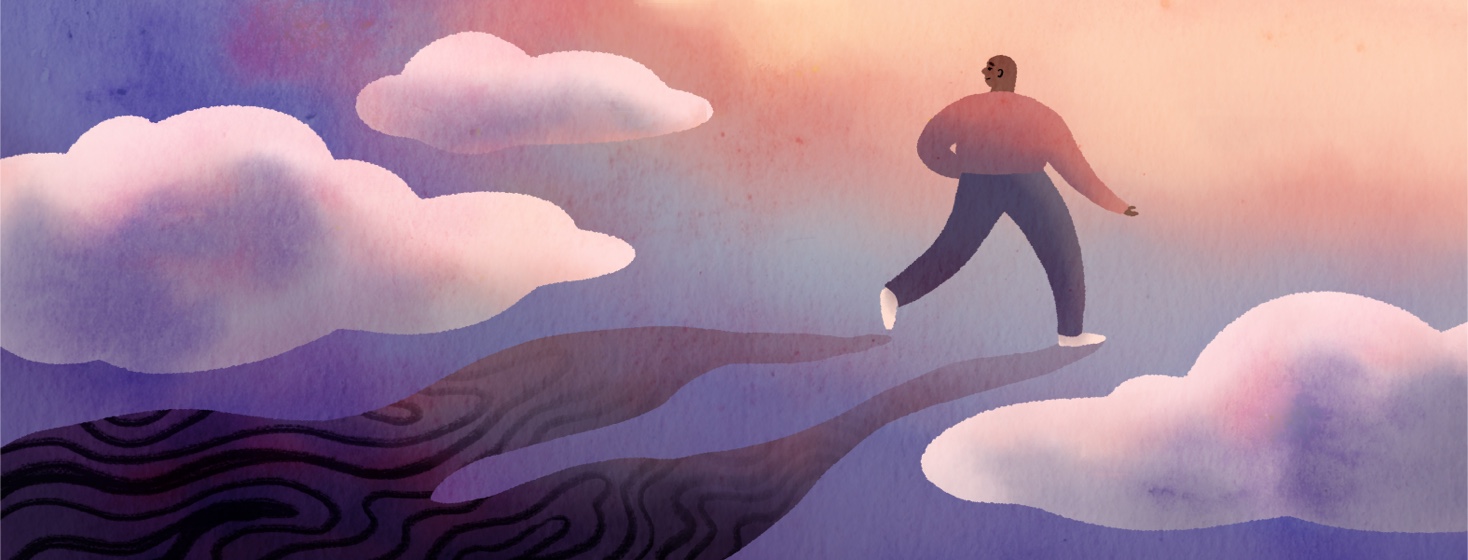What I Do to Control the Anxiety of Uncertainty
This is the 30th year that some type of HIV testing has been a part of my life. From the first confirmation that I was HIV positive to checking on my t-cell counts and, eventually, the constant monitoring of viral load - the sticking of the needle has become an ever-present companion on this journey.
But if not for the burden of constant testing, I know that my treatment path would not be successful. So, I endure it by reminding myself that it is always better to know than not. Still, there is one thing that comes with this process that I still struggle with after all this time.
The anxiety of uncertainty. That moment between taking the test and getting the results. When I don't know what my doctor will tell me and have no control over how it may unfold.
The anxiety of uncertainty
It's not just test results that bring this feeling on. The first opportunistic infection I was diagnosed with was Kaposi's Sarcoma. This cancer still has no cure. It was only through the successful suppression of HIV in my body through treatment that the purple lesions crawling across my body went away.
At least once a year, I find myself with a small bruise on my arm or leg that I cannot account for. I immediately begin wondering if my medicine has stopped working. Am I about to endure treatment failure and the consequences? I know better, but the trauma from years ago is still intense in my mind, and it takes all the strength I have to get back to a rational state of mind.
This is what anxiety does to us. It makes us irrational and focused on what-ifs and what we don't know.
Living with a chronic illness and anxiety
It certainly doesn't help that the changing landscape of regulations, laws, and insurance coverage is the reality we have to operate in as people living with a chronic illness. Every year, as I choose a new plan, my nerves are frayed, and I worry if I made the right choice.
When you think about it, life itself is uncertain. None of us know what the future will bring. We make plans and adjust them as we go. And somehow, we make our way through it.
Sure, there are more intense moments than others. I still bear the emotional scars from AIDS devouring my partner in the 90s. I made it through years of not knowing if he would come out of the hospital after each stay, whether I would lose my insurance because of my diagnosis, and if his family would swoop in and take him away, leaving me with nothing but painful memories.
Looking to the past for answers
What lessons did I learn that I can utilize to calm my anxiety today?
As always, it starts with accepting that you can only control how you react to the events around you. I wouldn't say I like how anxiety makes me feel, and I don't need what it does to my immune system to happen.
I must calm myself and step away from what is causing the uncertainty. That does not mean avoiding something; it just means that I have to focus on something else. It is okay to take your mind off things worrying you. No one's mind is designed to be in a constant state of fear.
It can be as small as a walk or a long drive. I have spent afternoons in museums; other times, I turn on the television and let it drown out the world. What matters is that I stop myself from reacting to irrational fears with irrational emotions.
Featured Forum
View all responsesIs this a problem right now?
When I get my mind in a better space, I ask myself, "Is this something I have to worry about?" Rarely do I answer yes. That's because I give myself other options on how to react. Maybe it's something I need to monitor. Or perhaps it's something I have to create a plan for.
But I always ask the second question: "Is this something you are making up in your head?" Nine times out of ten, it is.
The importance of routines
Another thing I do is focus on my routines whenever I am waiting for a result or new information on something that I actually have to be concerned with. Caring for myself and my home can be a natural salve for the spirit when I feel in crisis mode.
I enjoy making lists of tasks and checking them off. It can be simple chores like doing laundry or cleaning the fridge. Other times, I give myself a larger project, like weeding the yard or reorganizing the closet. Disconnecting in the routines of life can make time pass by in a more positive way than just sitting on the couch and running scenarios through my head.
Staying connected
Through all of this, I connect with the people around me. Having a support network primed for these moments can be a real factor in not feeling alone. Like everyone, I do not know what tomorrow will bring, so I'll focus on today and enjoy every moment of it.

Join the conversation